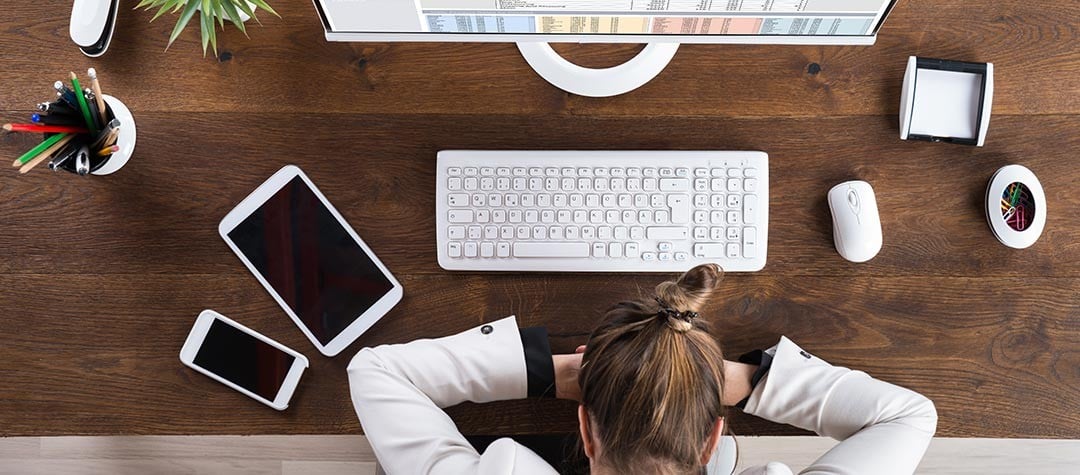If that bloating feeling knocks your confidence and leaves you feeling uncomfortable then find out how to beat the bloat.
Most people have experienced the feeling of being bloated at some point in their lives. However, for some it can be a recurring problem, leading to frequent discomfort and embarrassment. To help beat bloating and get the flat stomach you’ve dreamed of, check out these 10 de-bloating tips.
1. Consult your GP
Bloating can be caused by a variety of factors, including water retention and poor digestion. However, if you frequently suffer from chronic bloating, potentially accompanied by other issues, you should visit a health professional to discuss your symptoms and try to pinpoint a cause. As bloating can be a symptom of manageable conditions such as IBS or coeliac disease, as well as a reaction to certain medications, it is important to get an expert opinion.
Ignoring chronic symptoms could lead to more serious problems in the future. Bloating could be a sign of a deeper rooted problem and putting aside symptoms as mere stomach upset can be dangerous; cancers, liver disease, diverticulosis and other problems that encompass bloating as a symptom will need to be ruled out by a doctor.
When to not ignore bloating: if your bloating if accompanied by any of the following symptoms, it is a good sign that your body is suffering with a more serious problem and you should consult a doctor to ensure your body is healthy. If you experience any weight loss, ascites (build up of abdominal fluids), abdominal pain, fever or blood in stools, it is important to seek help.
2. Keep a food diary
If you tend to get bloated following meals or find that you bloat randomly quite frequently, it could be a sign that you are suffering from a food intolerance. Although the effectiveness of such tests may be questionable, it is worth checking if you suffer with a food allergy to establish any potential physiological causes for bloating.
Keep a food diary, logging everything you eat and any times you feel bloated, to help you establish any causal links between your diet and bloating.
But the best thing to do is to keep a food diary, logging everything you eat and any times you feel bloated, helping you establish any causal links between your diet and bloating. Suffering with recurrent bloating is annoying and if your diet is the cause of such discomfort, eliminating and finding food alternatives can solve your problem to the belly bulge.
3. Take a probiotic
A healthy gut is packed with good bacteria which help to break down food and prevent yeast overgrowth. However, due to factors such as stress and medication (particularly antibiotics) the levels of good bacteria all around your body can decrease. When this happens, digestion and your yeast levels in the gut are affected, both of which can lead to bloating.
To rectify this, try taking a probiotic supplement. Probiotics can restore your natural balance by reducing the amount of bad bacteria and decreasing the bloating caused by such bacteria. Probiotics can also be found in some yogurts, although dairy can be a cause of bloating for some and so supplements may be a more appropriate option.
4. Stay hydrated
Ironic as it may sound, staying well hydrated is one of the best ways to reduce the water retention which can lead to bloating. If your body is frequently dehydrated it will hold onto water as storage, potentially causing you to bloat. Furthermore, getting enough fluids can help you to improve your digestive system and avoid constipation, which is one of the most common causes for bloating.
Ironic as it may sound, staying well hydrated is one of the best ways to reduce the water retention...
What you drink however, can have a serious effect on how much you are bloating; carbonated drinks are typically devious at encouraging gassy stomachs and further bloating. Instead drinking flavoured water or sipping on peppermint and green teas can relax the stomach and ease bloating.
5. Avoid gas-inducing foods
The leading cause of bloating is excess gas, caused by numerous foods, and so it is best try to limit your intake of gas-inducing foods such as cabbage, sprouts, beans and grains. You shouldn't cut out vegetables entirely as they are highly nutritious and provide many benefits, instead gradually introduce them to your diet, allowing your body to adjust to high-fiber foods such as these.
Also, the sweeteners sorbitol and maltitol can typically cause bloating, it is also best to avoid chewing gum as the body will begin digestion of an empty stomach, only furthermore adding to the gas to the stomach. Try also cutting down on refined sugars, fermented products such as alcohol and cheese, and foods containing yeast, as these can cause the yeast in the gut to thrive, causing excess gas and bloating.
6. Concentrate on your meals
Many of us eat our meals on the go or while chatting with family and friends; however, taking more time over your meals and not talking while you eat could help reduce post-meal bloating. Eating too quickly and talking can cause you to swallow air, leading to excess gas. Simple steps such as chewing more thoroughly, with your mouth closed and avoid talking when eating can help reduce air taken into the stomach.
It is also beneficial to eat little and often, as large meals can overload the digestive system causing excessive gas and constipation. Aiming for around 5 or 6 smaller meals to break up your intake will not only reduce bloating, but can also help maintain healthy blood sugar levels and hunger.
7. Give your digestive system a helping hand
If you regularly feel bloated after meals, it may be that you naturally have low levels of certain enzymes needed for the breakdown of foods, meaning that these foods are not being digested properly resulting in gas. To rectify this, try supplementing your meals with natural enzymes such as papain, bromelain or lactase which can help the digestive system break down certain foods that your body may be having difficulty with.
Simple additions such as these are easily bought over the counter and can greatly speed up the digestive process and assist a healthy digestive speed.
8. Try natural bloating remedies
Sadly, bloating will affect most of us from time to time, regardless of how well we monitor what we eat. But luckily, there are some natural remedies that you can turn to in times of tummy distress. A good natural remedy for bloating is charcoal capsules, which help to absorb excess gas.
A good natural remedy for bloating is charcoal capsules, which help to absorb excess gas.
Peppermint capsules and aloe vera juice are also good for supporting the digestive system and help prevent bloating when taken regularly. Pineapple and parsley are other home remedies that can assist the easing of inevitable bloating, which all provide an alternative to medications.
9. Get active
Exercise is known for its many health and weight benefits, but believe it or not, exercise can also help reduce the feeling of bloating. To help gas pass through the digestive system more quickly when bloated, heading out for a brisk walk or jog can help encourage digestion and easy gases from the stomach.
It is also beneficial to try and establish a regular exercise routine as regular workouts help to keep the digestive system working efficiently, a healthy diet that usually accompanies a regular workout routine will also encourage a happy stomach and reduced bloating. Strengthened abdominal muscles will also accompany any form of exercise, which will help to reduce the extent that the stomach muscles relax when gas builds up in the gut.
10. Relax
One of the biggest precursors to digestive problems, specifically bloating, is stress . The digestive tract can be extremely sensitive to stress hormones, which is why many people experience abdominal pain or bloating during turbulent times in their lives. To help reduce bloating, try to manage your stress by experimenting with different relaxation techniques, such as yoga and meditation, to find one that works for you.
Sleep can also be an important remedy for stress, and so try to achieve around eight hours per night and you will be rewarded with the many benefits that accompany sleep; weight control, improved mood and clarity, along with a reduction of bloating.
Feeling and looking your best is essential and so it is important to ensure that your body and stomach are functioning properly. Following these tips and sticking to a healthy lifestyle, including your diet and exercise, will gradually show the benefits you hope for.














